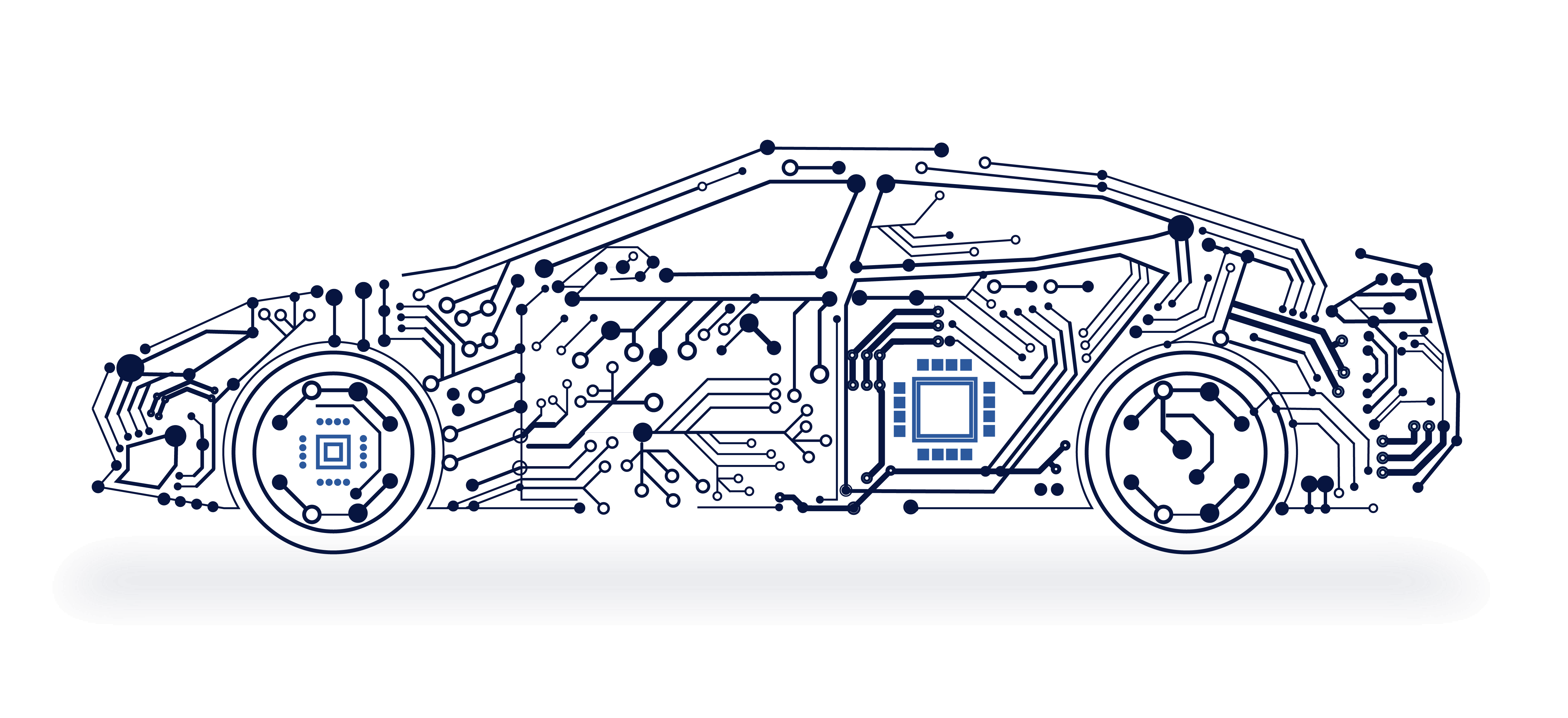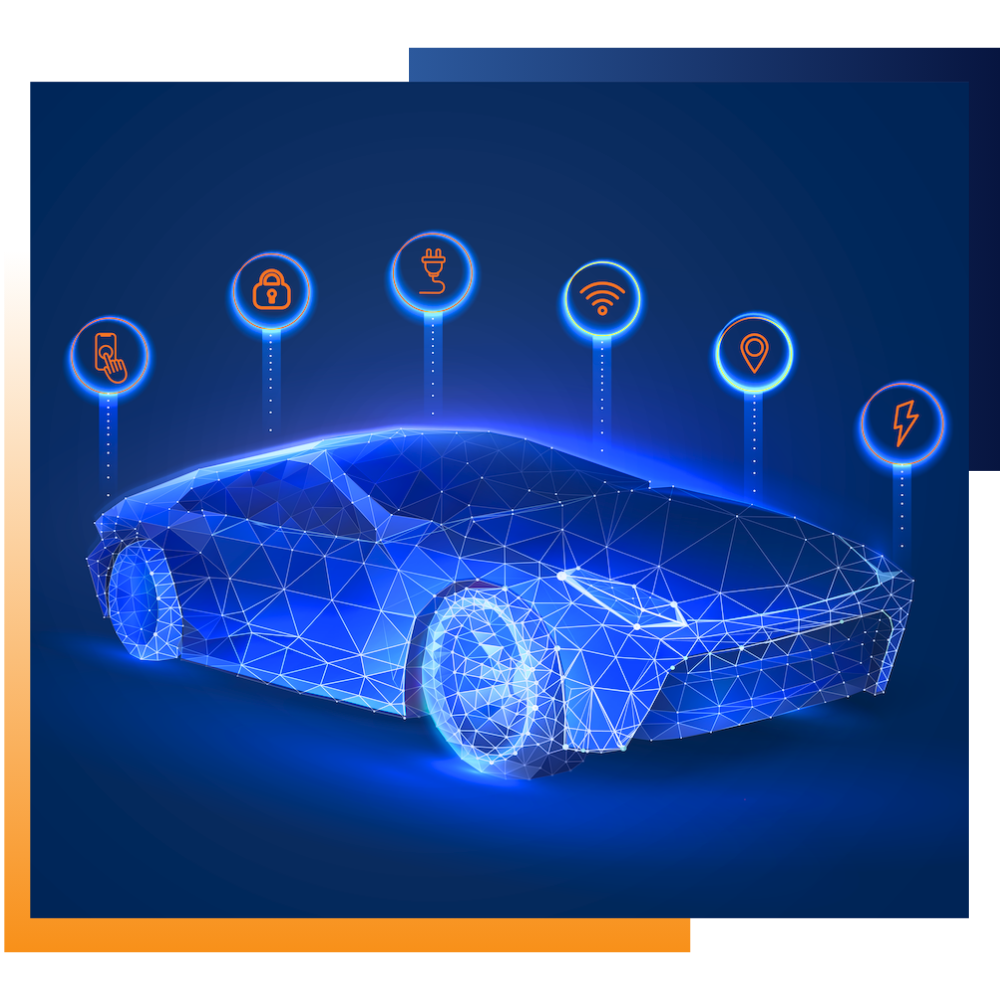Comprehensive Automotive Cybersecurity Protection
RunSafe Security mitigates known and unknown vulnerabilities in connected and autonomous vehicles. Our technology seamlessly integrates with automotive standards and safeguards critical vehicle functions to protect products and customers from cyber-attacks.

Effortlessly Secure Embedded Automotive Software
Hackers can exploit vulnerabilities in connected and autonomous vehicles to gain control over critical functions, steal sensitive data, or compromise overall safety, underscoring the urgent need for robust cybersecurity in the automotive industry.
RunSafe Security delivers unparalleled defense through automated vulnerability identification and advanced code-hardening techniques. RunSafe protects your software against attacks that could compromise vehicle operations and safety. Our solutions ensure that your vehicle’s software remains resilient and secure, allowing manufacturers to confidently address the growing complexities of automotive cybersecurity without sacrificing functionality or performance.
“Adding RunSafe to our software means we have more opportunity to shrink the attack surface and reduce overall risks for our customers since security is now already built into our product.”
Protect Vehicle Safety and Security
Fortify critical systems like braking and steering against cyber attacks. With millions of lines of code creating a large attack surface, RunSafe’s automated solutions reduce vulnerabilities and enhance vehicle safety.
Comply with
Regulations
Guarantee adherence to increasing regulatory requirements with robust security measures and incident response processes to ensure compliance and vehicle safety protection.
Enable New
Technologies
Strong cybersecurity measures are essential for implementing of emerging automotive technologies at scale.

Integration with Automotive Safety Standards
Our technology aligns with industry standards by enabling continuous risk assessment and threat modeling. This approach enhances vehicle security and streamlines the certification process, reducing time-to-market for new automotive technologies. With RunSafe, automotive manufacturers can confidently navigate the complexities of compliance.
RunSafe Security’s solutions integrate with existing automotive safety standards, such as ISO 26262 and the emerging ISO/SAE 21434. This integration ensures that our cybersecurity measures complement and enhance established safety protocols, supporting a comprehensive approach to vehicle security.
Automobile manufacturers maintain compliance by implementing secure coding practices and providing robust documentation while effectively protecting critical software against known and unknown vulnerabilities.


Proactive Cybersecurity for Secure and Resilient Vehicles
RunSafe Security is dedicated to futureproofing automotive systems. Our solutions proactively address evolving risks by reducing attack surfaces and hardening code against known and unknown vulnerabilities.
By safeguarding critical vehicle functions, RunSafe enhances the security and resilience of modern vehicles, helping manufacturers and suppliers protect their products and customers from the growing landscape of cyber threats.
Latest Resources
Navigating Third-Party Software Risk: Best Practices for 2026
Most of the code running in your product probably isn't code you wrote. Open source libraries, vendor SDKs, and firmware components all become part of your attack surface the moment they're compiled into your build. Third-party software risk is the potential for...
The Worst Vulnerabilities of 2025: How Pre-Auth RCE Broke the Perimeter
Across industries, the year’s most damaging vulnerabilities shared the same defining trait: unauthenticated remote code execution (pre-auth RCE) on internet-facing systems. VPNs, firewalls, web frameworks, and even core ERP platforms all fell victim to flaws that...
3 SBOM Generation Methods: Binary vs Build-Time vs Source Code
Your SBOM is only as useful as it is accurate, and the method you use for Software Bill of Materials (SBOM) generation determines the level of accuracy you will receive. SBOM generation method determines whether an SBOM captures what developers declared, what scanners...
Ready to Get Started?
RunSafe secures automotive and transportation systems by protecting embedded software from memory-based vulnerabilities, ensuring vehicle safety and resilience against cyber threats without impacting performance or requiring code rewrites.


